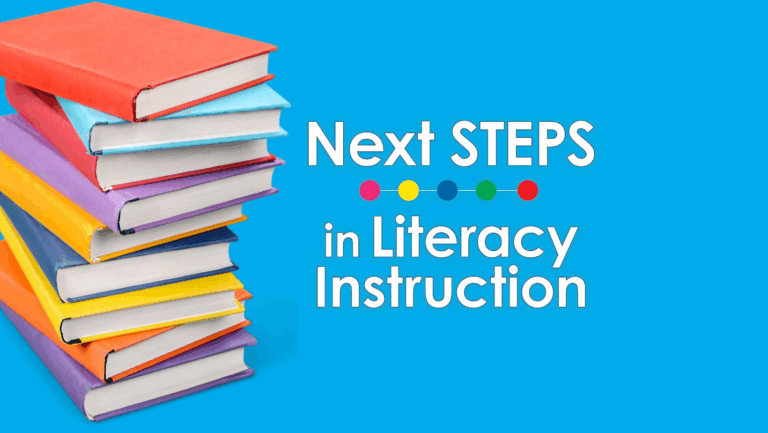In August through October of 2024, ONlit hosted an eight-part book study for Ontario educators. Following Deb Glaser and Susan M. Smartt’s book, Next STEPS for Literacy Instruction: Connecting Assessments to Effective Interventions, Jordan Sloan facilitated this series in English and French. Each session focused on supporting educators to translate screening, diagnostic, and progress monitoring data to effective, evidence-based instruction. The book highlights foundations of explicit instruction and evidence-based assessment.
All the recordings, slide decks, and mentioned links are available for download from this link in English, and this link in French. Educators across Ontario are encouraged to download these free materials to use for their own professional development.
Early reading screening is used to inform educators as they provide instruction and further intervention supports to students. In the release of PPM 168 in 2023, it states that “Early reading screening is designed to support effective instruction.” Educators can use the data from early reading screening to provide targeted evidence-based reading instruction to all. This book study includes clear, actionable next steps on how to take this screening data and turn it into instruction that impacts student outcomes.
Sessions 1-4 focus on early foundational reading skills. Session 1 introduces the book study and its connections with PPM 168. Session 2 discusses evidenced-informed instruction essential for struggling readers, including systematic instruction and data-informed decision making. Sessions 3 and 4 focus on Phonemic Awareness and Decoding, essential skills found in the 2023 Ontario Language curriculum. Each session gives examples on how to analyze student data and determine appropriate instructional steps.
Sessions 5-8 continue by focusing on further skills that are essential for future reading proficiency. Fluency, reading comprehension, and vocabulary are all explored so educators can be intentional and strategic by using screening data to make evidence-informed instructional decisions. The final session concludes by weaving all the elements together.
Erika Chesnick, an Early Years and K-8 Literacy Consultant for the Limestone District School Board, shares how their team used the book and ONlit materials to support professional learning.
The ONlit Book Study materials were an important part of building capacity and understanding related to screening and structured literacy across the district. We provided a Next Steps in Literacy Instruction book to every K-8 educator who participated in advanced training around screening.
As a facilitator of the learning, I found the slides useful in framing discussion questions throughout the day of learning and I integrated the visuals into the slide deck I built. I found the outcomes-driven model visual especially helpful as it worked as a framework for the flow of the day and grounded our learning.
We also run ‘Rapid Rundowns’ in Limestone, which are quick 30-minute sessions offered on a regular basis around a particular topic. Many of our sessions last year focused on the book Next Steps in Literacy Instruction. The content of the slide decks were helpful when preparing for these sessions – it was nice not to have to start from scratch!
All the recordings, slideshows, and mentioned links for the Next STEPS Book study are in the ONlit Resource Library. To date, thousands of downloads of these materials have supported educators’ professional development. The book is also available in the OCT Library for Ontario educators.
As stated by Smartt and Glaser, “Nothing feeds motivation to read more than being able to read”. ONlit’s Book Study on Next STEPS for Literacy Instruction will support educators to be intentional, strategic, and make evidence-informed instructional decisions so all their students have reading success.

